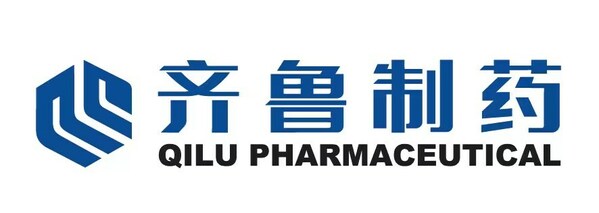 |
JINAN, China, Oct. 19, 2023 /PRNewswire/ -- Data from Qilu Pharmaceutical's clinical trial of its novel bifunctional antibody, QL1706 (iparomlimab and tuvonralimab), will be unveiled during a mini oral presentation at the European Society for Medical Oncology (ESMO) Annual Congress 2023. The ESMO Congress, the premier global conference in the field of medical oncology, will take place in Madrid, Spain from October 20 to 24, 2023. The presentation will provide updates on a multicenter, single-arm phase II clinical trial of QL1706. This innovative treatment, used in combination with chemotherapy and with or without bevacizumab, is being investigated for its potential as a first-line therapy for recurrent or metastatic cervical cancer (CC).
Additionally, a poster showcasing a multicenter, randomized, double-blind, parallel-controlled Phase III clinical trial conducted by Qilu Pharmaceutical. This study examines the use of a combination of pertuzumab biosimilar (QL1209), trastuzumab and docetaxel as a neoadjuvant therapy for the treatment of early or locally advanced HER2-positive, hormone receptor-negative breast cancer will be featured at the congress.
I. Phase II Clinical Trial of QL1706
Combination immunotherapy has emerged as the first-line treatment approach for recurrent/metastatic CC. Qilu Pharmaceutical's class 1 novel drug, QL1706, is a bifunctional antibody that simultaneously targets PD-1 and CTLA-4, producing synergistic anti-tumor effects. The phase Ib clinical trial of QL1706 for advanced solid tumors has confirmed the drug's promising efficacy of monotherapy in patients with advanced cervical cancer (ACC). An objective response rate (ORR) of 28.3% was observed in ACC patients who had not previously undergone immunotherapy[1] . To further investigate the efficacy of dual immunotherapy combined with chemotherapy in patients with recurrent/metastatic CC, a multicenter, single-arm phase II clinical trial was initiated to assess QL1706, administered with chemotherapy and with or without bevacizumab, as a first-line treatment for recurrent or metastatic CC.
The study enrolled recurrent or metastatic CC patients who had not undergone systemic therapy. These patients were treated with either QL1706-chemotherapy (Cohort 1) or QL1706-chemotherapy-bevacizumab (Cohort 2) until disease progression, the occurrence of intolerable toxicity or the patient's withdrawal of informed consent. The primary endpoint of the study was safety, with secondary endpoints including ORR, duration of response (DOR), disease control rate (DCR), progression-free survival (PFS) and overall survival (OS), which were assessed by the investigators according to the Response Evaluation Criteria in Solid Tumors (RECIST 1.1).
The findings of this study indicated that as of April 24, 2023, out of 58 patients who received at least one post-baseline efficacy evaluation, ORR was 81.0% (95% CI, 68.6-90.1). The results were observed over a median follow-up duration of 14.0 months. Among these patients, eight achieved complete response (CR) and 39 achieved partial response (PR). The DCR was 98.3% (95% CI, 90.8-100.0). The median PFS reached 14.3 months (95% CI, 9.2 months to not estimable), while the median OS has not yet been reached. The data demonstrate the outstanding efficacy of a combination of QL1706 and chemotherapy, with or without bevacizumab, for treating recurrent or metastatic CC. A Phase III clinical trial of the combination therapy is currently ongoing.
Phase III Clinical Trial of QL1209
A multicenter, randomized, double-blind, parallel-controlled Phase III clinical trial was conducted to assess the clinical equivalence of QL1209 and the original drug, both used in conjunction with trastuzumab and docetaxel as a neoadjuvant treatment for early or locally advanced HER2-positive, hormone receptor-negative breast cancer.
The study enrolled patients with early or locally advanced HER2-positive, estrogen receptor (ER) and progesterone receptor (PR) negative breast cancer. These patients were randomly assigned in a 1:1 ratio to either the QL1209 trial group or the control group receiving the original drug. Both groups underwent four cycles of neoadjuvant therapy with QL1209/original drug + trastuzumab + docetaxel (THP), followed by a post-surgical pathological response evaluation. Both groups then received adjuvant chemotherapy with fluorouracil-epirubicin-cyclophosphamide (FEC) for cycles 5-7, and QL1209 + trastuzumab for cycles 8-20. The study's primary endpoint was the total pathological complete response (tpCR), as assessed by an independent review committee (IRC).
The study enrolled 517 patients, of which 516 received treatment. In terms of efficacy, the IRC-assessed tpCR rates were 42.7% in the trial group, and 45.2% in the control group. The ratio of the tpCR rate between the two groups was 0.946 (90% CI: 0.80-1.11), falling within the equivalence margin (0.76-1.32). Regarding safety, the incidence of treatment-emergent adverse events (TEAEs) was 94.6% in the trial group and 96.1% in the control group; the occurrence of grade 3 or higher TEAEs was 31.9% in the former group and 34.7% in the latter while the incidence of treatment-related adverse events (TRAEs) was 77.4% and 78.0%, respectively. As for immunogenicity, the incidence of anti-drug antibodies (ADAs) and neutralizing antibodies (NAbs) was similar between the two groups (2.3% and 3.1%; 0.8% and 0.8%, respectively). ADA positivity had no impact on efficacy, pharmacokinetics or safety. These findings suggest that the two groups exhibit similar clinical efficacy, with no significant differences observed in safety or immunogenicity. Based on these results, it can be concluded that QL1209 is a biosimilar to pertuzumab.
References:
1. Zhao Y, et al. First-in-human phase I/Ib study of QL1706 (PSB205), a bifunctional PD1/CTLA4 dual blocker, in patients with advanced solid tumors. J Hematol Oncol. 2023 May 8;16(1):50. doi: 10.1186/s13045-023-01445-1.